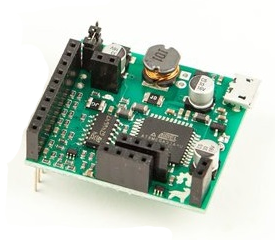
EspoTek’s Labrador is an excellent single board, all-in-one USB oscilloscope / signal generator / power supply / logic analyzer / multimeter with a cross-platform Qt5-based GUI frontend. It is especially useful for use with Raspberry Pi-series computers. It works out of the box on RPi3 and earlier models, but unfortunately, as-shipped, RPi4 has a firmware bug which prevents Labrador from working.
To fix the unfortunate situation, you need to update the RPi4’s firmware to the latest version with a tool called rpi-eeprom.
- Make sure your system is up-to-date, and install
rpi-eeprom. - Change
FIRMWARE_RELEASE_STATUS="critical"to"stable"in/etc/default/rpi-eeprom-update. - Run
rpi-eeprom-updateto check the status of the firmware. The result should look somewhat like this:
BCM2711 detected Dedicated VL805 EEPROM detected BOOTLOADER: up-to-date CURRENT: to 3.9.2020 12.11.43 +0000 (1599135103) LATEST: to 3.9.2020 12.11.43 +0000 (1599135103) FW DIR: /lib/firmware/raspberrypi/bootloader/stable VL805: up-to-date CURRENT: 000138a1 LATEST: 000138a1
The current VL805 firmware version is the important one here, if it is older than
000138a1, you have to update the firmware. - The actual update happens when you then run
rpi-eeprom-updatewith the-dswitch (i.e.rpi-eeprom-update -d). The new firmware binaries are loaded during the following reboot. Ensure that the update was succesful by checking again withrpi-eeprom-updateafter rebooting.

For Arch Linux / Arch Linux ARM users:
I uploaded a Git version of Labrador GUI for Arch Linux to AUR. It supports 32-bit and 64-bit x86 architecture and several ARM versions (armv6h, armv7h, aarch64).
